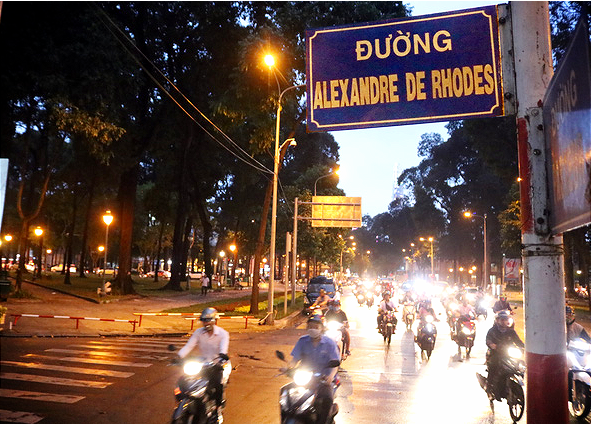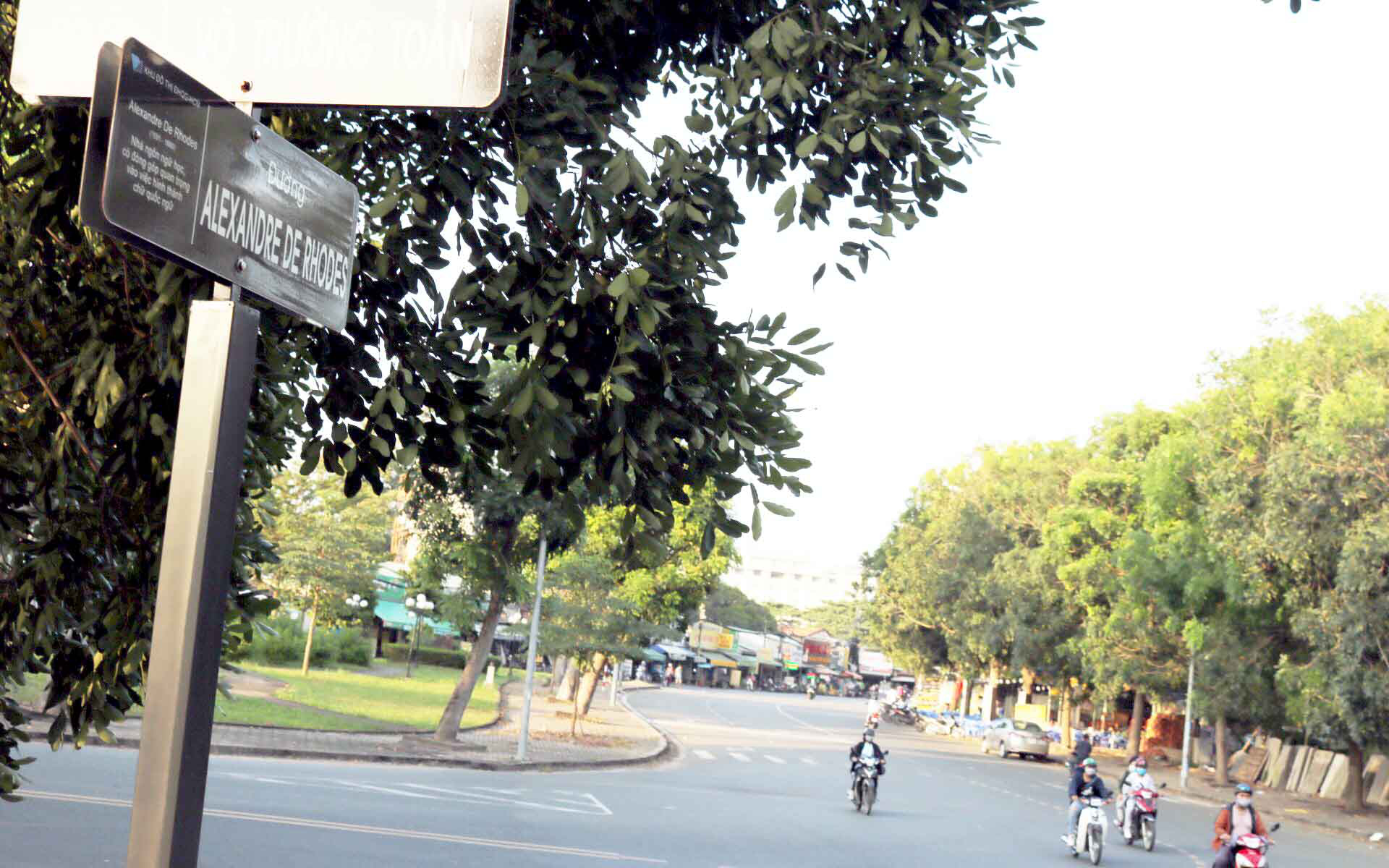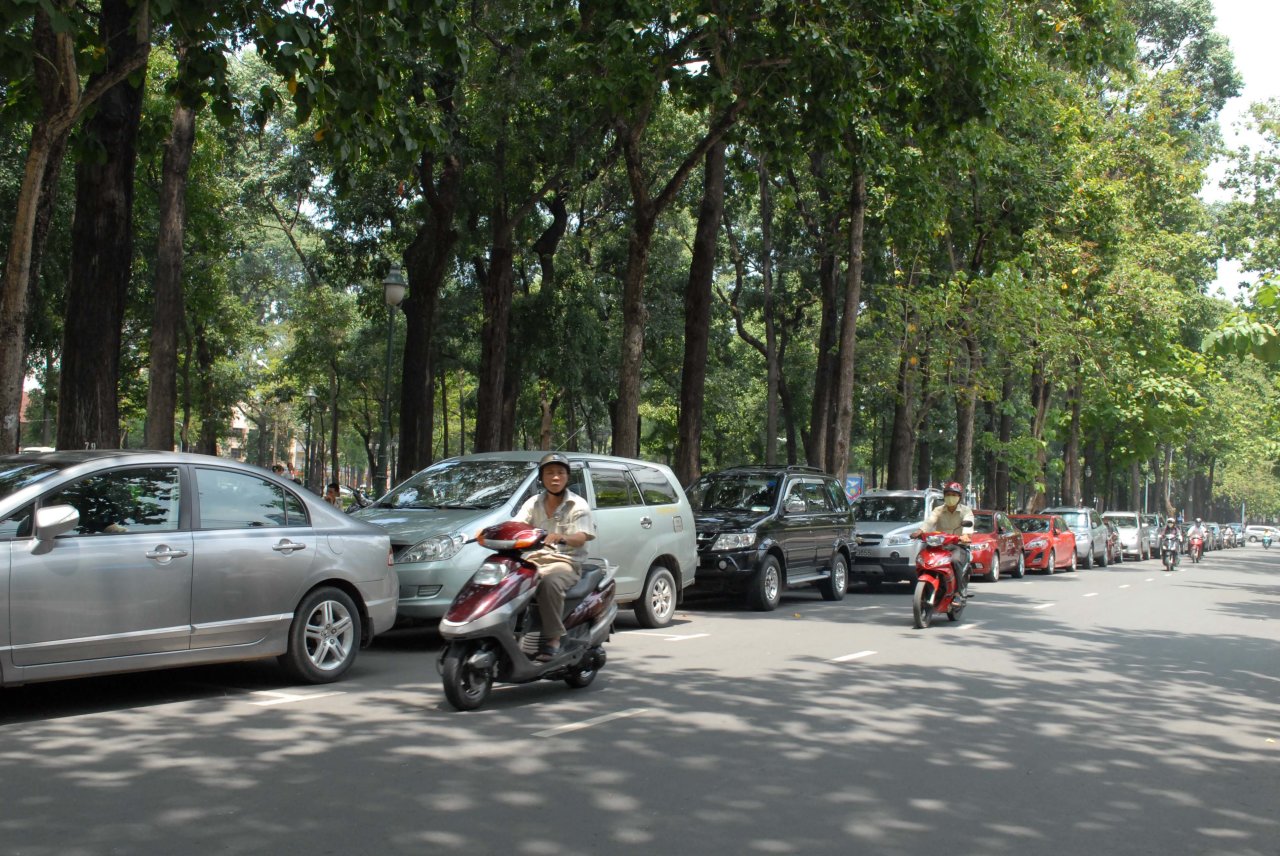A proposal to name two streets in Da Nang after two 17th-century missionaries credited with systematizing Vietnam’s Latin-script alphabet that remains in official use today has been met with a heated debate over whether they deserve such honor.
On October 7, the Culture and Sports Department of Da Nang said it was welcoming feedback on a draft scheme to name and rename nearly 140 streets and public structures in the central Vietnamese city by the end of 2019, VnExpress reported.
Among Vietnamese war heroes and remarkable figures across different fields, two Western missionaries, Francisco de Pina and Alexandre de Rhodes, who were key to the development of Vietnam’s romanized writing system, also came up on the list as prospective names for two streets near a landmark monument in Hai Chau District.
Francisco de Pina, a Portuguese who came to southern Vietnam in 1617, was the first Christian missionary to learn to speak fluent Vietnamese and use the native language in his preachings, historian Do Quang Chinh wrote in his book Lich Su Chu Quoc Ngu (A History of the Vietnamese Alphabet) published in 1972.
De Pina was also credited with composing important materials on the romanization of the Vietnamese writing system.
His novice Alexandre de Rhodes, a Frenchman, compiled the first trilingual Vietnamese-Portuguese-Latin dictionary, which was published in Rome in 1651, marking the first time a Latin-script Vietnamese writing system was presented in a systematized way.
|
|
| A street name sign of the Alexandre de Rhodes Street within a Vietnam National University campus in Thu Duc District, Ho Chi Minh City. Photo: Hoang Anh / Tuoi Tre |
Da Nang's street naming scheme was expected to be submitted to the municipal People’s Council for approval in December, but the plan has been put on hold indefinitely after controversy arose surrounding the use of the two Westerners’ names for naming local streets.
Debate erupted when a letter of opposition to the idea was submitted this month to authorities in Da Nang by Dr. Le Cung from Hue University’s College of Education.
Cung claimed to represent a group of 12 Vietnamese experts who are historians, history professors, and political scientists from multiple institutions across Vietnam.
However, one expert on the list has told Tuoi Tre (Youth) newspaper that he never agreed to back the opposition because he did not believe history was his field of expertise as a philosophy professor.
“I was invited to join the opposition against naming Da Nang streets after the two missionaries, but I turned down the invitation,” Dr. Nguyen Tien Dung, former dean of the Faculty of Political Theory at Hue University’s College of Sciences, told Tuoi Tre on Thursday.
“I have asked that my name be withdrawn from the list because it undermines my credibility,” he said.
According to the opposition, the Western missionaries helped romanize Vietnam’s writing system and disseminate the Latin-script alphabet to “pave the way” for French colonizers to invade the country.
Vietnam was a colony of France for nearly 100 years between the mid-19th century and the mid-20th century.
“We don’t deny [de Pina and de Rhodes’] contributions to the formation of the Vietnamese alphabet, but controversial figures shouldn’t have been considered [for street names] in the first place,” said Dr. Tran Thuan, former vice-dean of the Faculty of History at the University of Social Sciences and Humanities, Vietnam National University - Ho Chi Minh City.
Thuan is one of the 12 experts listed in the letter opposing the street naming scheme.
Historian Nguyen Dac Xuan, another expert who has publicly backed the opposition, said street names should be reserved for honoring only those with “meritorious service” to the country.
Proponents of the street naming argue that the missionaries’ contributions to developing Vietnam’s current writing system cannot be dismissed.
|
|
| Alexandre de Rhodes Street in District 1, Ho Chi Minh City. Photo: Tuoi Tre |
This is not the first time the naming of a street in Vietnam after Alexandre de Rhodes has incited debate among scholars.
In late 1994 and early 1995, controversy also arose after Ho Chi Minh City authorities considered renaming a downtown street near the Reunification Palace to honor the French missionary.
However, after a seminar joined by historians and scholars was held in 1995 to discuss the proposition, a high consensus was reached among participants that de Rhodes deserved to have a street named for him.
The Alexandre de Rhodes Street now stretches 300 meters from the Reunification Palace to the Notre-Dame Cathedral Basilica of Saigon in District 1.
It runs parallel to Han Thuyen Street, which is named for a 13th-century scholar credited with devising and popularizing ‘chu Nom,’ a logographic writing system formerly used to write the Vietnamese language.
Huynh Van Hung, director of the Culture and Sports Department of Da Nang, said a similar seminar will be held in Da Nang in December to discuss the missionaries’ contributions to the formation of the Vietnamese alphabet.
Like us on Facebook or follow us on Twitter to get the latest news about Vietnam!























































